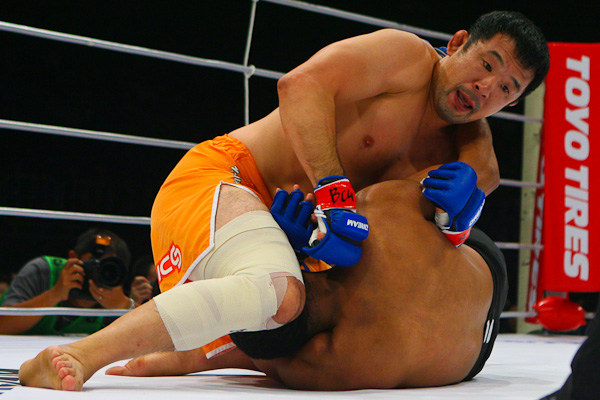Imagining an MMA Hall of Fame: The Inaugural Class
The Inaugural Class

Editor’s note: This is the first installment in a five-part series examining the possibilities involved with a true MMA Hall of Fame.
With Pat Miletich’s induction into the Ultimate Fighting Championship Hall of Fame over UFC 175 weekend, the organization increased the size of its hall to 12 members. The group is an impressive one, featuring some of the best fighters of all-time. However, it also has its share of notable omissions that are difficult to reconcile with some of the names that have been enshrined. The UFC, to its credit, has framed its hall as a celebration of figures important to the development of modern Ultimate Fighting Championship rather than a catalog of MMA’s most iconic stars. However, that still leaves room for a proper MMA Hall of Fame with official voting and an eye on the broader sport.
Advertisement
So what would an MMA Hall of Fame look like? No two individuals are going to agree across the board. Babe Ruth and Willie Mays were not unanimous selections to the National Baseball Hall of Fame. Opinions also change over time. Advanced metrics have altered perceptions of historical athletes while games have changed to where certain skills become more valued than others. Still, let us attempt to tackle the loaded questions surrounding who would properly comprise an MMA Hall of Fame.
To best organize this exercise, let us divide fighters into five groups and for the time being set aside promoters, announcers, trainers and other non-fighters. The first group is all-time legends, the sort of icons who would be candidates for the handful of inaugural inductions; the second group is equally undebatable all-time greats who fall just a little short of the first group; the third group is comprised of clear hall of famers, but ones who do not -- or do not yet -- have the credentials or significance of the truly elite. The fourth and fifth groups are where the action is: debatable figures that might or might not belong in a hall of fame.
There is also the question of criteria. Some might feel that the only consideration should be success in competition, but to me, there ought to be a lot of weight given to historical significance, as well. MMA is an individual sport, meaning certain fighters have been responsible for building it up and carrying it on their backs. It is also a young sport, where certain figures have been of crucial importance to its evolution. Thus, an MMA Hall of Fame should take into account both fighting success and overall significance to the sport. This is not just about winning fights but capturing the public’s imagination and leaving lasting memories.
With that said, let us break down potential candidates, starting with the hypothetical inaugural class:
Continue Reading » Randy Couture
Related Articles






